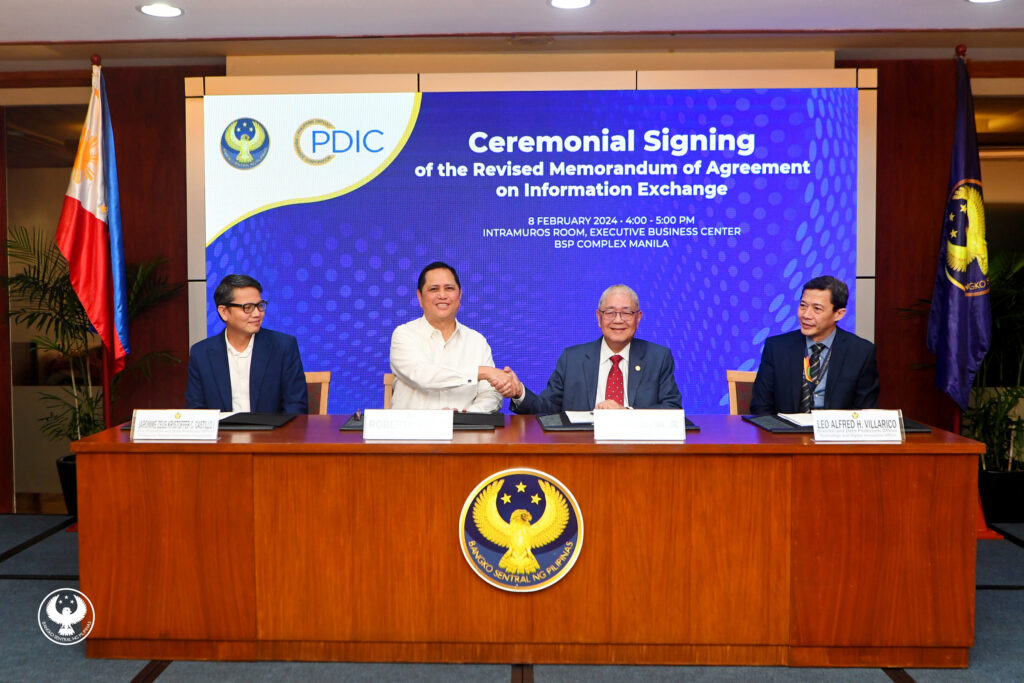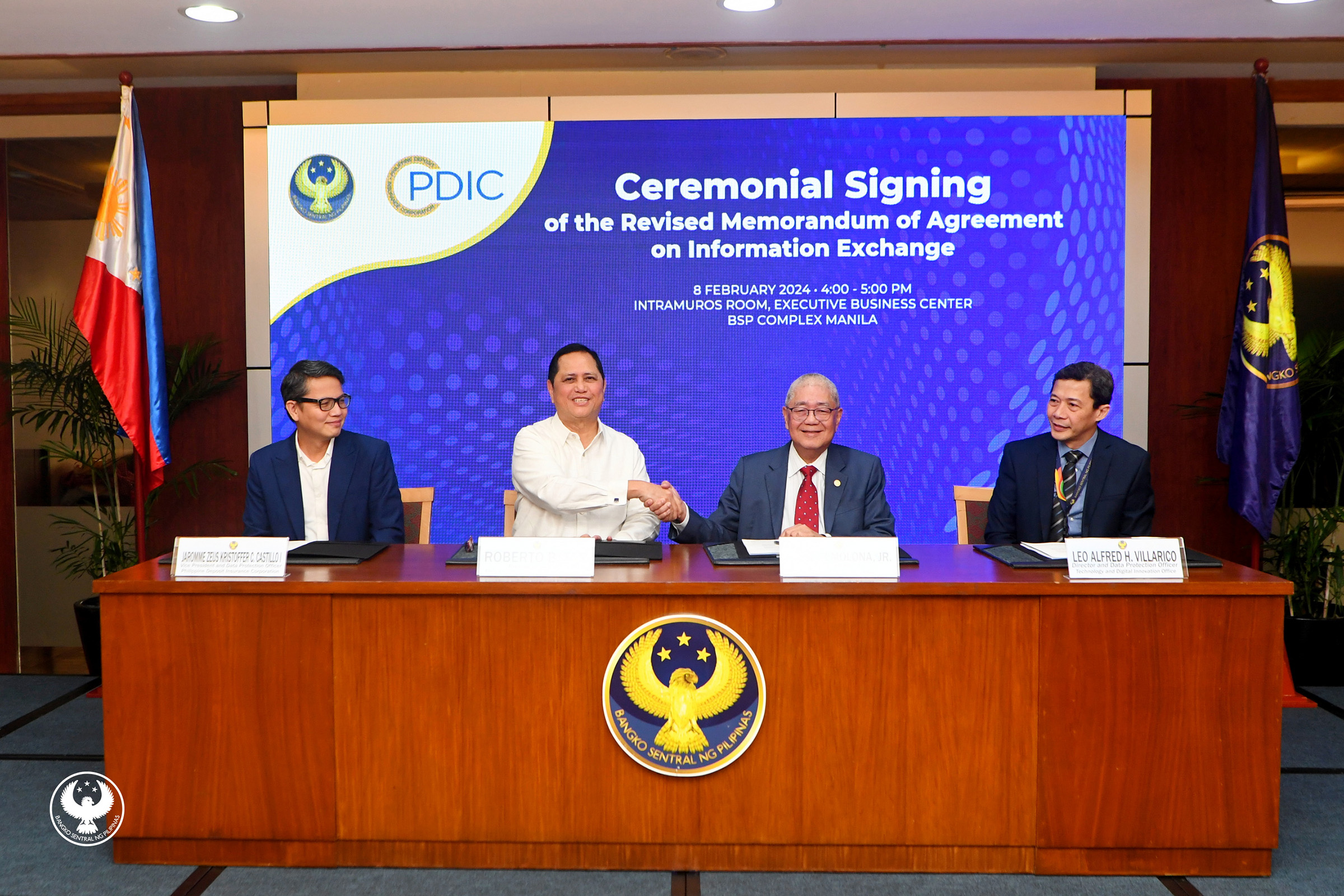To protect the depositing public, especially from frauds and scams that have since become even more elaborate and complex, two government institutions have recently joined hands to remind banks to be extra careful and take risks more seriously.
Early this week, Governor Eli M. Remolona, Jr. of the Bangko Sentral ng Pilipinas (BSP) and Roberto B. Tan, President and Chief Executive Officer (CEO) of the Philippine Deposit Insurance Corporation (PDIC), led the signing of the BSP-PDIC Revised Memorandum of Agreement (MOA) on Information Exchange at the BSP head office in Manila.

BSP Governor Eli M. Remolona, Jr. and PDIC President and Chief Executive Officer Roberto B. Tan shake hands after signing the BSP-PDIC Revised Memorandum of Agreement on Information Exchange at the BSP head office. They were joined by PDIC Vice President and Data Protection Officer Jaromme Zeus Kristoffer C. Castillo I (leftmost) and BSP Director and Data Protection Officer Leo Alfred H. Villarico (rightmost).
The MOA signing signifies the two agencies’ strong collaboration and shared vision for a resilient and responsive financial sector.
BSP chief Remolona said that the Revised MOA is timely as the regulatory framework and supervisory culture for the BSP and the PDIC have changed over the years.
“We have moved from a very prescriptive examination and supervision style to a risk-based, more principles-based supervision. We do not tell banks specifically what to do. We tell banks to take risks seriously, and that is the reason for all these regulatory standards,” the BSP governor shared.
The BSP governor also emphasized the important role of deposit insurance as a tool in managing deposit runs — one of the biggest risks for banks.
“I enjoin everyone, as stewards of this Revised MOA, to follow through on your commitments to keep the Revised MOA updated, relevant, and operational in pursuit of our primary objective of promoting financial system stability,” he added.
For his part, PDIC President and CEO Tan said, “Transparent communication between us provides opportunities for a comprehensive understanding of potential risks, enabling us to draw up preemptive measures, detect challenges early, and promptly intervene to immediately address problems among banks to make it responsive to the changing times.”
He added, “The collaboration between our institutions becomes even more paramount and imperative to protect the depositing public, especially from frauds and scams that have become even more elaborate and complex.”
The Revised MOA amends the agreement dated 12 November 2002 and the supplemental MOA executed in 2004; it also updates the list of documents shared therein.
It will be operationalized as an Omnibus Agreement covering all information, data, and reports shared between the BSP and the PDIC in pursuit of their respective mandates.
Other key features of the Revised MOA include seamless information sharing through digital platforms and rationalized processes; leveraging the BSP Electronic Information System (EIS) for the timely, secure, and efficient sharing of reports, data, and information between the two agencies; and the periodic review and update of the MOA to consider evolving supervisory requirements.
Prudential reporting requirements of banks will also be streamlined, with banks no longer required to submit some prudential reports separately to the PDIC.








